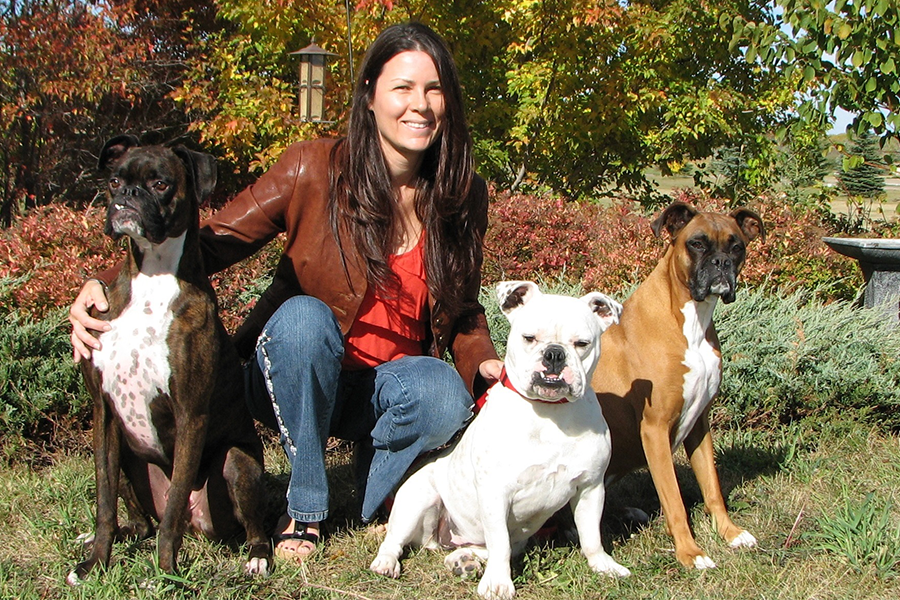
USask leads study into PTSD service dogs and veterans' substance abuse recovery
SASKATOON—Learning how psychiatric service dogs can help veterans living with post-traumatic stress disorder (PTSD) recover from problematic alcohol and drug use is the focus of a new $1.4-million research program led by the University of Saskatchewan (USask), in partnership with five universities and a dozen community organizations and members.
By USASK RESEARCH PROFILE AND IMPACTColleen Dell, a USask sociology professor specializing in addiction and animal-assisted interventions, has been awarded $850,000 by Health Canada to lead a national project that will help veterans suffering from trauma who are coping through the problematic use of substances.
USask is supporting the program with $175,000, and an additional $360,000 of in-kind support will be provided by AUDEAMUS, a non-profit service dog organization run by and for veterans.
Service dogs are increasingly being recognized as a complement to regular PTSD treatment. The dogs are trained with technical skills, such as waking a veteran from a night terror, and the human-animal bond is a motivating influence for improved health, such as going for regular outdoor walks.
“We know that some veterans turn to alcohol and other substances, and overuse prescription medication, to cope with their PTSD symptoms. It is important that service dog organizations be aware of this and have recovery resources to share with their clients,” said Dell, who also serves as the Centennial Enhancement Chair in One Health and Wellness at USask’s College of Arts and Science.
Working with participating service dog organizations, the goal of the team’s three-and-a-half year project is to develop an addictions specific toolkit and pilot test it with 30 veterans from the AUDEAMUS service dog program. The kit will highlight the role of peer support, recognizing it is an important part of the Canadian Armed Forces culture, as well as addictions recovery.
The project was announced Nov. 26 at the national Issues of Substance conference where Dell and her One Health team reported on their exploratory work that informed the development of the new project.
Veteran Paul de Groot participated in the pilot study and is now a member of the project team.
“It wasn’t like typical research because the researchers trained right alongside us with service dogs,” he said. “We really got to know them. And we really got to have our voices heard throughout the study. I am excited now to continue as part of the research team.”
He is featured in a 10-minute video announcing the project and soliciting participation from service dog organizations in the project:
“Service dogs can be an important step in the healing journey for veterans suffering with PTSD and substance use disorder. We hope many service dog organizations in Canada will join us and take part in this project,” de Groot said. “Lives depend on it.”
The Canadian Research Initiative in Substance Misuse (CRISM), funded by the Canadian Institutes of Health Research, awarded $114,000 to Dell for one of two exploratory studies that are coming to a close. The other study was funded through her Centennial Enhancement Chair. Initial results were recently published in the Journal of Substance Use and presented at the Saskatchewan Research Showcase.
This project was announced during National Addictions Awareness Week in Canada: #StigmaEndsWIthMe
-30-
For more information, contact:
Jennifer Thoma
Media Relations Specialist
University of Saskatchewan
306-966-1851
jennifer.thoma@usask.ca
Colleen Anne Dell, PhD
Research Chair in One Health and Wellness
University of Saskatchewan
306-966-5912
Cell: 306-270-1452
colleen.dell@usask.ca

